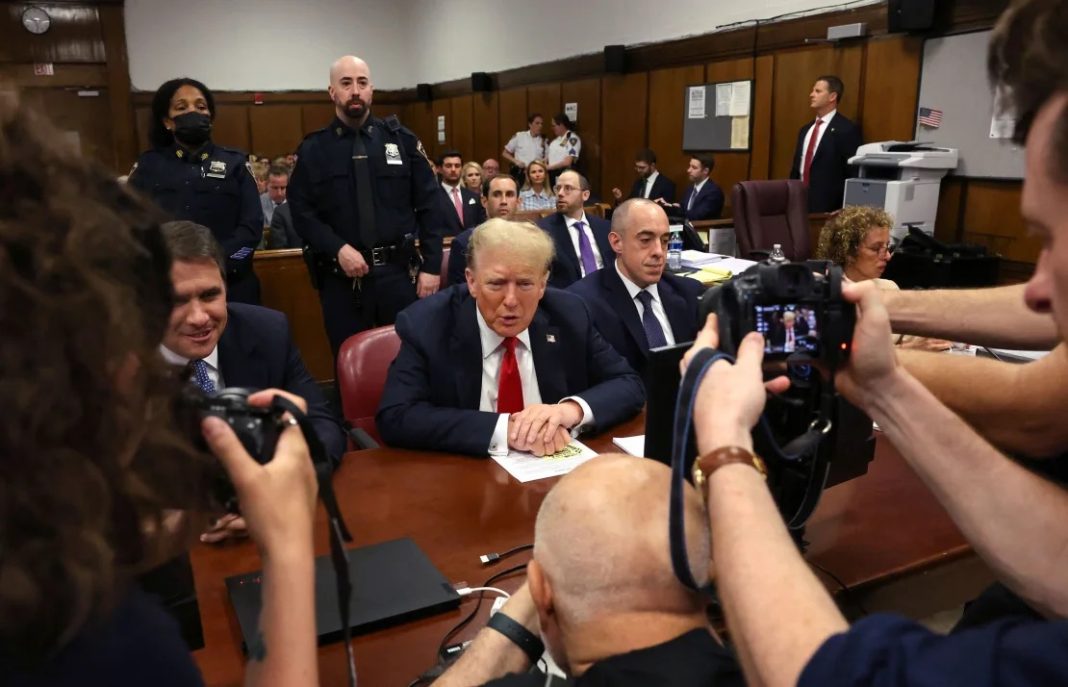NEW YORK — Former President Donald Trump’s sentencing on 34 felony counts of falsifying business records has been postponed, with the Manhattan District Attorney’s office acknowledging in court filings on Tuesday, November 19, 2024 that any resolution of the case is unlikely until after Trump’s upcoming presidential term.
The delay follows Trump’s legal team’s plans to file motions to dismiss the conviction, citing a U.S. Supreme Court ruling on presidential immunity.
In a letter to Judge Juan Merchan, Manhattan prosecutors suggested pausing sentencing to avoid constitutional conflicts stemming from Trump’s return to the White House.
“The People deeply respect the Office of the President, are mindful of the demands and obligations of the presidency, and acknowledge that Defendant’s inauguration will raise unprecedented legal questions,” the district attorney’s office wrote.
“Consideration must be given to various non-dismissal options that may address concerns raised by the pendency of a post-trial criminal proceeding during the presidency, such as deferral of all remaining criminal proceedings until after the end of Defendant’s upcoming presidential term.”
Trump, who was convicted in May, was originally set to be sentenced on Nov. 26. The charges stemmed from alleged reimbursements made to his former attorney, Michael Cohen, for a $130,000 hush money payment to adult film star Stormy Daniels during the 2016 presidential campaign.
Trump has denied having an affair with Daniels and has described the case as politically motivated.
Legal Arguments on Both Sides
The Manhattan District Attorney’s office maintains that the conviction should stand, asserting that the evidence presented at trial, including business records and testimony from White House aides, was overwhelming.
However, Trump’s attorneys argue the trial was improperly influenced by evidence relating to his presidential acts, which they contend should have been excluded under the Supreme Court’s expanded interpretation of presidential immunity.
Trump’s legal team also claims that the ongoing legal proceedings would impede his ability to govern.
“The stay, and dismissal, are necessary to avoid unconstitutional impediments to President Trump’s ability to govern,” Trump attorney Emil Bove wrote in a letter to the court.
Bove is one of several attorneys Trump has tapped for senior positions in his upcoming administration.
District Attorney’s Concessions
The district attorney’s office has agreed to a stay of proceedings while the defence prepares its motion to dismiss but has rejected arguments for overturning the conviction.
Prosecutors assert that the evidence of Trump’s guilt was clear, regardless of the Supreme Court ruling.
Broader Legal Context
The case is the only one of four criminal cases brought against Trump after his presidency to go to trial.
His legal team’s strategy of delaying proceedings past the 2024 election has been largely successful, with federal cases in Washington and Florida paused and Georgia’s racketeering case stalled.
Manhattan prosecutors remain steadfast that Trump’s conviction was justified.
“We deeply respect the fundamental role of the jury in our constitutional system,” the district attorney’s office stated in its filing.
However, they acknowledged that balancing the jury’s verdict with Trump’s presidential immunity presents unprecedented challenges.
Trump Campaign Responds
Steven Cheung, Trump’s communications director, described the development as “a total and definitive victory for President Trump and the American People who elected him in a landslide.”
He called the district attorney’s concessions a tacit acknowledgment of what Trump’s team has labelled a “witch hunt.”
Looking Ahead
Judge Merchan, who had been expected to rule on whether the Supreme Court’s presidential immunity decision could overturn Trump’s conviction, has postponed any ruling in light of the parties’ agreement to delay sentencing.
A timeline for the defence’s motion to dismiss and subsequent proceedings remains unclear.
As Trump prepares for his January inauguration, this latest legal pause underscores the unique legal and constitutional complexities of prosecuting a sitting president.
The Manhattan District Attorney’s office has indicated that it will continue pursuing the case after the conclusion of Trump’s presidential term in 2029.







